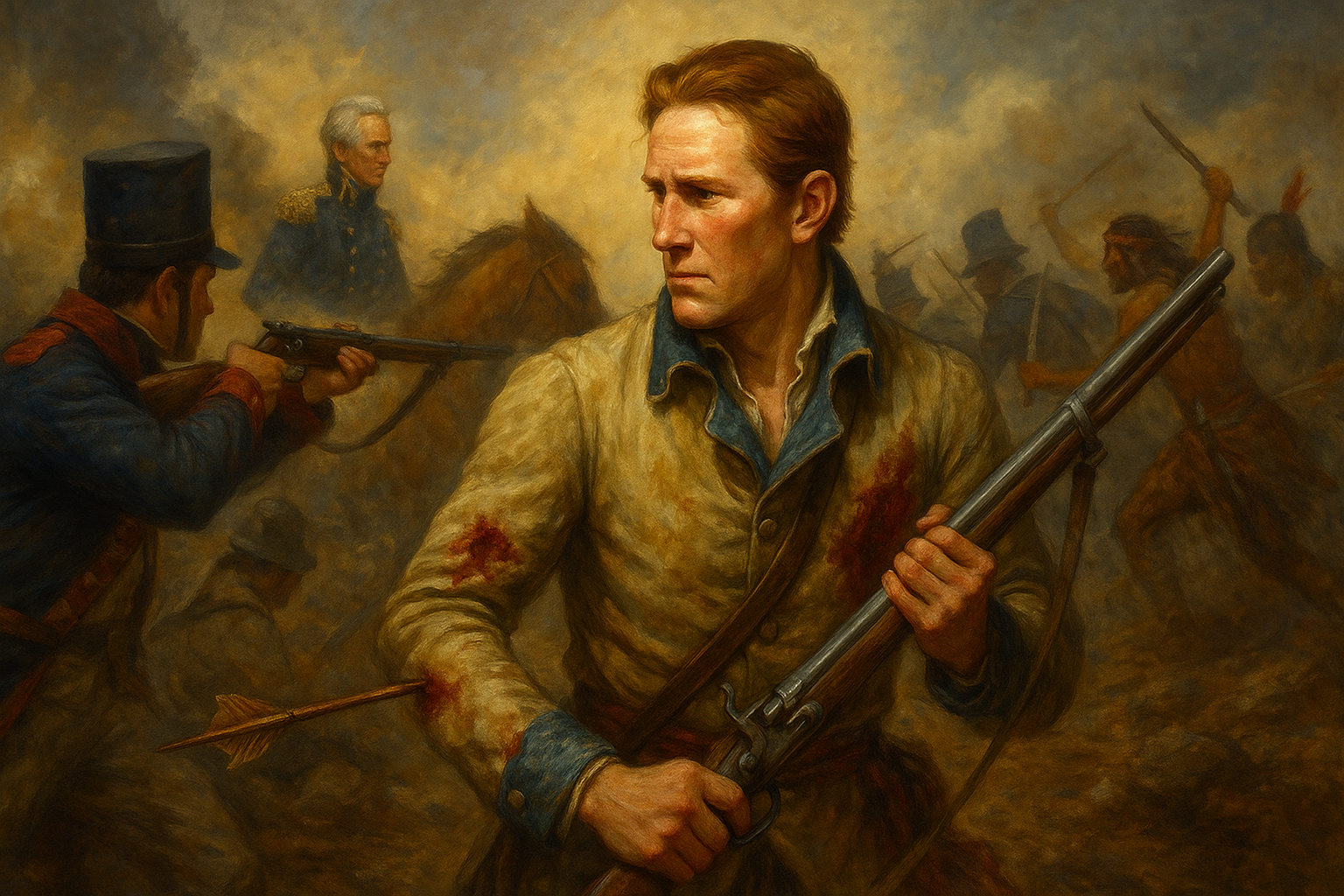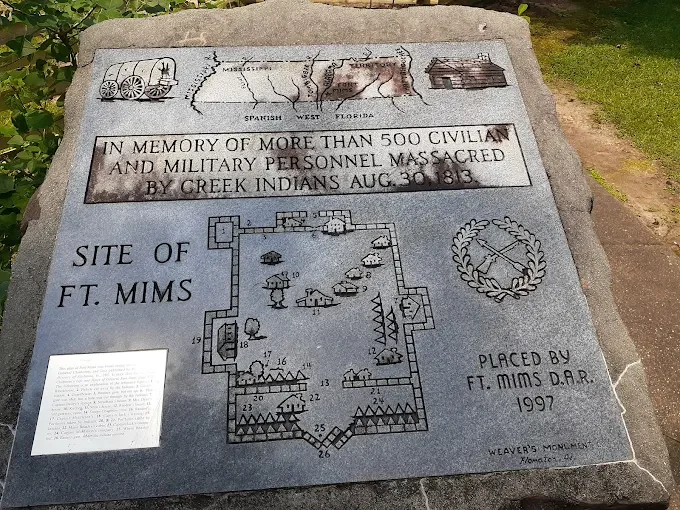Sam Houston’s Heroic Wounds at Horseshoe Bend That Shaped His Destiny
The Colonel of Houston’s regiment the 39th Infantry was Thomas Hart Benton, who later served nearly 30 years in the U. S. Senate from Missouri and became an ardent advocate for westward expansion. It was he who first noticed Houston’s leadership qualities and brought him to Andrew Jackson’s attention. In August 1813 hostile Creeks massacred 400 white settlers at Fort Mims, Alabama, and the 39th Infantry under Jackson was sent to destroy them.
On March 26, 1814 Jackson trapped the hostile Creeks on a tight loop of the Tallapoosa River called Horseshoe Bend 136 miles south of the Tennessee line. Jackson cut off the Creeks retreat by having his Cherokee steal their canoes and attempted to wear down the fort with artillery, When he finally ordered an assault, it was the 39th Infantry that spear-headed it.
Dr. Randolph Campbell, Historian stated: “The first soldier over was Lemuel Montgomery, and he was killed. It was he for whom Montgomery County, Alabama was named. The second person over was Houston, and he took an arrow in the thigh. Then in spite of Jackson’s telling him to stay out of the battle, he continued and he was hit twice more with rifle balls in the arm and the shoulder. He was wounded to the point that after the battle doctors looked at him and said he’ll not make it through the night, don’t pay attention to him.”
Dr. Greg Cantrell, Historian stated: “Those wounds never healed, and he had to learn to lance his own wounds and drain them and redress them all of his life. Remember, he was only 19 or 20 years old at the time.”
Sam returned to his mother’s farm so emaciated that she did not recognize him. True to his word, they had heard of him, and he returned a hero. After a rest, he was sent to Washington for further medical attention where he saw the ruins of the Capitol and the White House burned by the British, then he was transferred to New Orleans where the second musket ball was finally removed from his shoulder in an operation that nearly cost him his life.
Andrew Jackson ended the War of 1812 with a shattering victory at the battle in New Orleans and became a national hero. Still on the mend Houston was placed on Jackson’s staff and the two became increasingly close.
Sam Houston was nominated by Andrew Jackson’s Democratic Party for the U. S. House of Representatives to Congress for the Ninth Tennessee District in 1823. He won the election garnering 100% of the votes and served until 1827. Sam was then elected Governor of Tennessee replacing two-term Governor William Carroll and served until 1829.

